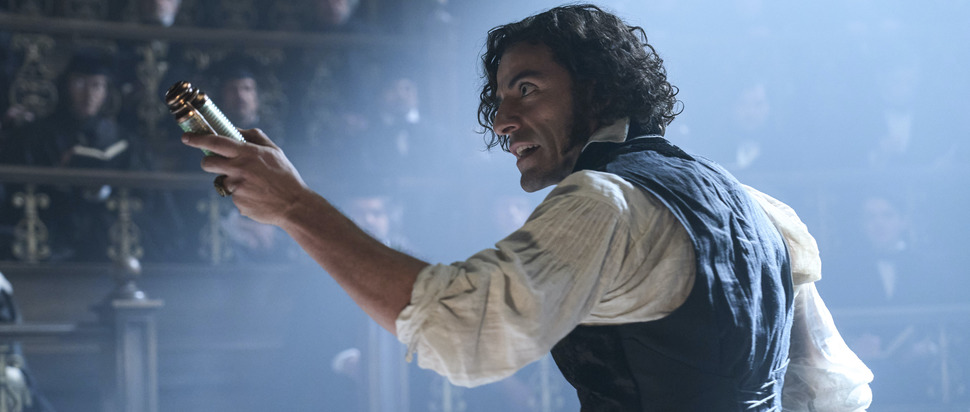Frankenstein
Guillermo del Toro’s Frankenstein is a sumptuous adaptation, but it embellishes the novel to its own detriment
Gothic maximalist Guillermo del Toro has cited Mary Shelley's tale of God-like aspirations and lost humanity as one of his earliest sci-fi influences, and here he reworks it into yet another entry in his filmography of melancholy kids.
The stunning but at times vacuous film takes us on a tour of Edinburgh, making the most of the city's surgical tradition and bodysnatching tales, before the action heads to Geneva. Shelley's plot is tweaked to frame genius scientist Victor Frankenstein's (Isaac) obsession with life and death as a trauma response rather than sheer ambition, making his arc more palatable but less compelling, with Isaac playing him like a livelier, though no less narcissistic, counterpart to his previous role as AI creator Nathan in 2015’s Ex Machina.
Unlike other Frankenstein adaptations, del Toro takes great care to humanise his creature (Elordi). Elordi, however, is unconvincing in the part, with his scenes playing out like Hulk-esque outbursts crossed with wordy negotiations of identity. Completing the central trio is Mia Goth, who's underutilised as Elizabeth, a noblewoman engaged to Victor’s brother. A sorrowful sister to Nosferatu’s Ellen Hutter, Elizabeth attempts to graduate from being an object of desire but remains trapped in a superficial romantic quadrilateral.
A hasty experiment with a huge budget and stellar cast — which also includes Christoph Waltz, Charles Dance and Ralph Ineson — Frankenstein drags along like its creature. Del Toro has crafted another gorgeous showstopper, but it’s one that struggles to locate its soul in the juxtaposition of its limp body parts.
Released 17 Oct by Netflix
Frankenstein had its world premiere at Venice Film Festival
